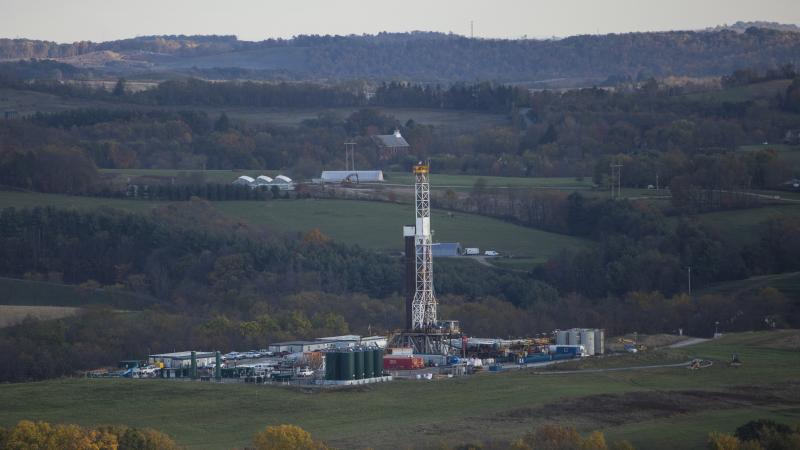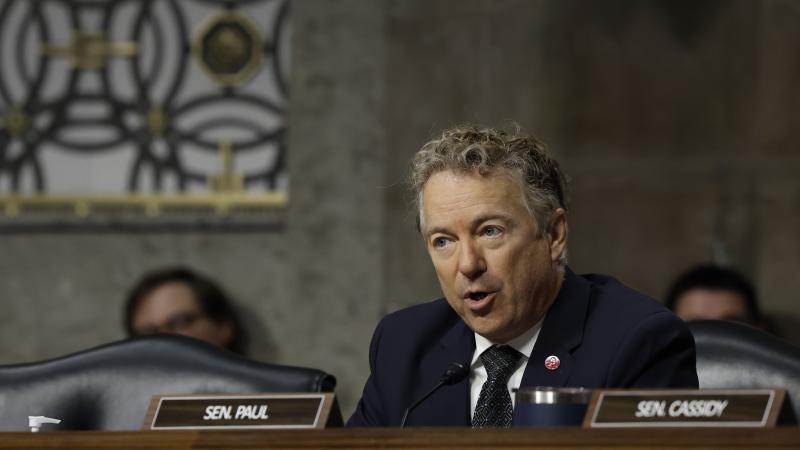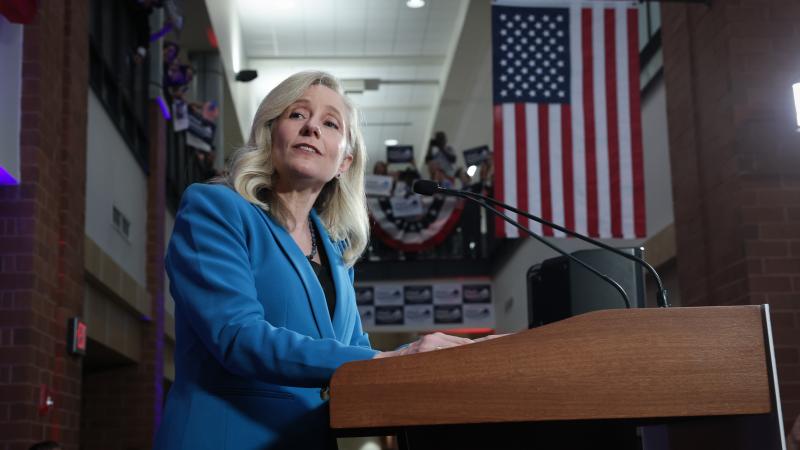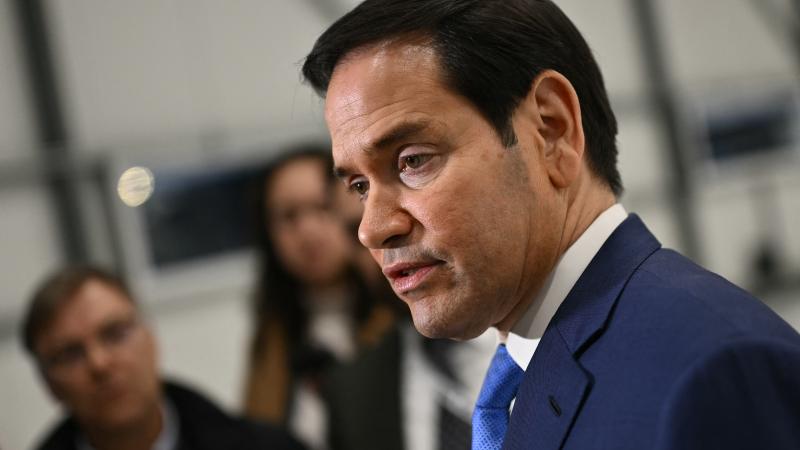Researchers say National Climate Assessment full of flaws, ask Trump to reassess past versions
Protect the Public’s Trust (PPT) and the CO2 Coalition are asking the Trump administration to fix flaws they say are in the previous assessments. This would bring the influential reports in line with Trump's “Restoring Gold Standard Science" executive order.
A government watchdog and a climate-science educational nonprofit are calling on the Trump administration to fix what they call “flaws” in the influential National Climate Assessment (NCA). These flaws, according to the groups, include a reliance on unrealistic emission projections, contradictions, and false information on heat waves, hurricanes and wildfires.
The assessment is a Congressionally mandated report that the U.S. Global Change Research Program (USGCRP) delivers to the president at least once every four years. The report is intended to integrate, evaluate and interpret the scientific findings on the impacts of climate change. Critics and researchers have argued the report has been highly politicized and not always consistent with sound science.
Gold standard science
In April, President Donald Trump cut funding and staff at the USGCRP, The New York Times reported, as well as other federal programs, which some scientists say will jeopardize the next installment of the assessment. The USGCRP website now has a banner at the top stating that the group’s operations are “currently under review.”
Protect the Public’s Trust (PPT) and the CO2 Coalition are asking the Trump administration to fix flaws they say are in the previous assessments. In May, Trump signed an executive order, “Restoring Gold Standard Science,” which states that the federal government, since the pandemic, had used or promoted scientific information in a “highly misleading manner.” The order argues that the Biden-Harris administration had politicized science, which it says undermined scientific integrity. In the interest of restoring trust in science, the order directs government research to follow standards of science from the first Trump administration.
In a letter sent to Michael Kratsios, director of the Office of Science and Technology Policy, which advises the White House on scientific, engineering and technological aspects of national policy, PPT and the CO2 Coalition argue that the Fifth National Climate Assessment is “riddled with violations of the principles” expressed in Trump’s order.
Michael Chamberlain, director at PPT, told Just the News that the flaws the CO2 Coalition scientists identify in the letter end up repeated in version after version of the assessment.
“It makes you wonder whether it was designed for the NCA to drive policy, or were intended policy outcomes designed to drive the NCA. It's still being relied upon by agencies and individuals in the government to make policy. So that's one of the clearest reasons for it to be revisited as soon as possible,” Chamberlain said.
Business as usual
Among the issues with the NCA is the use of Representative Concentration Pathway (RCP) 8.5, which is an emissions scenario often referred to as “business as usual.” The scenario projects outcomes if society takes no actions to adapt or mitigate changes to the climate. The scenario is used extensively throughout climate studies, but many researchers have pointed out that it’s entirely implausible.
Writing in the journal “Issues in Science and Technology” in 2021, Dr. Roger Pielke, Jr., retired professor of environmental science at the University of Colorado-Boulder, and Justin Ritchie, adjunct professor at the University of British Columbia’s Institute for Resources, Environment, and Sustainability, wrote that their research and those of their colleagues show the scenario is “outdated” and “misleading.” For example, RCP8.5 projects to 2100 a six-fold growth in global coal consumption per capita, despite expert predictions that coal consumption has or will soon peak.
“Why does this matter? Because RCP8.5—the most commonly used RCP scenario and the one said to best represent what the world would look like if no climate policies were enacted — represents not just an implausible future in 2100, but a present that already deviates significantly from reality,” the researchers argue.
Trump’s executive order also criticizes the Biden-Harris administration for using the scenario in its policymaking, noting that RCP8.5 predicts end-of-century coal use exceeding estimates of recoverable coal reserves. “Scientists have warned that presenting RCP 8.5 as a likely outcome is misleading,” the order states.
Revisiting and removing RCP8.5 from inclusion in an updated assessment, PPT and the CO2 Coalition state in their letter, would be a first step towards bringing government climate science in line with Trump’s order.
Omissions and contradictions
The letter also argues that the NCA fabricated, falsified and omitted contradictory data in order to support a net-zero emissions agenda. For example, the NCA presents a chart purporting to show that record high temperatures are occurring more frequently. The chart, the PPT and CO2 Coalition contend, didn’t show daily temperatures. Instead, it shows a ratio of daily record low temperatures each year, with a noticeable upward spike in recent years.
The Fourth National Climate Assessment claims there has been a significant increase in annual acreage burned in the contiguous U.S., based on a data set that begins in 1983. This omits data going back to 1926, showing that recent decades of wildfires have affected only 20% of the area that was burned in the 1920s and 1930s. These omissions, the letter points out, carried over into the Fifth National Climate Assessment.
The letter includes a report by Dr. William Happer, professor emeritus in the Department of Physics at Princeton University, and Dr. Richard Lindzen, professor emeritus of atmospheric science at MIT. The report outlines a number of similar issues with the NCA in its reporting on sea level rise, the relationship between carbon dioxide emissions and recent warming, and hurricanes.
Involvement of advocacy groups
When the Fifth Assessment was released, Pielke also raised a number of issues with it in his “The Honest Broker” Substack. He said it is “much more a glossy promotional brochure than anything resembling a careful assessment of the scientific literature on climate change and the United States.” Pielke explains that scientific assessments are "crucially important,” but the Fifth Assessment only further politicizes science.
Among the issues, he points out, is that several reviewers of the assessment asked the NCA to cite research he and his colleagues have done on extreme weather and economic losses, which show a downward trend. The NCA refused, saying that the comment is “inconsistent with the author team’s thorough assessment of the science.” In another comment, the NCA falsely claimed Pielke and his colleagues examined trends through 2005. They actually go to 2017.
Pielke also points out that climate advocacy groups with financial interests in carbon removal were involved in the report. It also leads with the National Atmospheric and Oceanic Administration’s “Billion Dollar Disaster” tally, which Pielke’s research showed was flawed and lacking in scientific integrity. In response to Pielke’s research, the agency agreed in August to reassess the tally, but in May, NOAA announced the project would no longer be updated.
Chamberlain said that he wishes the problems that PPT and the CO2 Coalition point out could just be shrugged off as sloppiness or honest mistakes, but the flaws they’ve found are too extensive and egregious.
“Respected experts who care for the integrity of the scientific method above their preferred policy outcomes would never allow such inaccuracies to go unaddressed and simply carry over from version to version. The NCAs must be corrected, and the president should start from scratch,” Chamberlain said.
The Facts Inside Our Reporter's Notebook
Documents
Links
- U.S. Global Change Research Program
- the New York Times reported
- Protect the Publicâs Trust
- CO2 Coalition
- Restoring Gold Standard Science
- Office of Science and Technology Policy
- used extensively throughout climate studies
- Issues in Science and Technology
- Institute for Resources, Environment, and Sustainability
- The Honest Broker
- show a downward trend
- Pielkeâs research showed was flawed
- agency agreed in August to reassess the tally
- project would no longer be updated















